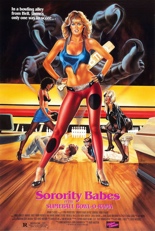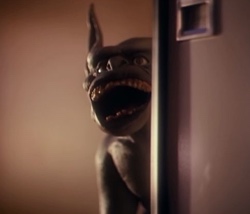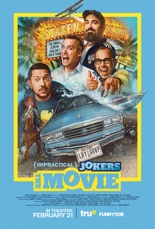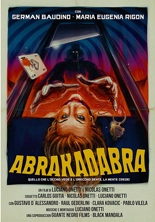
 Whereas most directors would typically fill a mid-’80s teen sex comedy about a quartet of slobs working the summer at a hotel south of the border with near-constant Mexican stereotypes, not every director is Galaxina’s William Sachs, who inexplicably fills the flick with so many sexed-up European characters that you almost want to give him some sort of award for his wokefulness.
Whereas most directors would typically fill a mid-’80s teen sex comedy about a quartet of slobs working the summer at a hotel south of the border with near-constant Mexican stereotypes, not every director is Galaxina’s William Sachs, who inexplicably fills the flick with so many sexed-up European characters that you almost want to give him some sort of award for his wokefulness.
The movie is the extra-spicy Hot Chili and its big star is Allan Kayser, who you might remember as Bubba from TV’s Mama’s Family … well, that’s where I remember him from. He’s the leader of this motley crew of horny high schoolers, including those oft-repeated tropes of the cool guy, the fat guy and the nerdy guy. As much as these guys talk about “fucking,” they all seem to be totally afraid of sex.
 Which isn’t to say there’s not a good reason for their erectile frights, especially given the oversexed ladies who are remarkably booked at the same time; this includes the accomplished-but-horny musician, the muscular-but-horny workout queen and the German-but-horny dominatrix who wants to do Mapplethorpe-esque things with bullwhips to the fat guy’s ass.
Which isn’t to say there’s not a good reason for their erectile frights, especially given the oversexed ladies who are remarkably booked at the same time; this includes the accomplished-but-horny musician, the muscular-but-horny workout queen and the German-but-horny dominatrix who wants to do Mapplethorpe-esque things with bullwhips to the fat guy’s ass.
A set of parents — the cool guy’s parents — show up and they’re erotically horned-up as well; even his little sister is sexually vapid, taking a video camera and making homemade revenge porn to show on the television screens at a modest dinner in the hotel’s restaurant where everyone is eating the titular magical fruit.
As you’d hope, Kayser is basically Bubba on vacation, while the chubby Joe Rubbo spends most of the movie in ill-fitting boxers. Add to the pot a trio of stacked blondes — Bea Fiedler, Victoria Barrett and Taaffe O’Connell — and, well, you still have a very dumb movie, but the type of movie that only Sachs could have ever made. ¡Olé! —Louis Fowler












